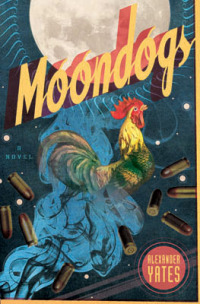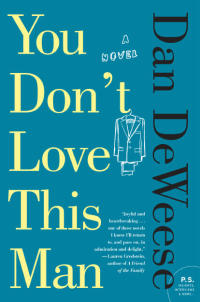Moondogs by Alexander Yates
 Tuesday, March 15, 2011 at 8:11PM
Tuesday, March 15, 2011 at 8:11PM 
Published by Doubleday on March 15, 2011
Moondogs has the feel of a movie with an ensemble cast. Monique Thomas works at the American Embassy in Manila. Her marriage to her "trailing spouse," Joseph, is troubled, and Monique's secretive extramarital activities aren't helping. Benicio Bridgewater has a difficult relationship with his father, Howard, but is working to rehabilitate it after his mother's death. He travels to the Philippines to visit Howard but shortly before his arrival, Howard is kidnapped by Ignacio, a taxi driver who is always accompanied by his cigarette smoking rooster. Efrem Khalid Bakkar is a Muslim soldier, the best sharpshooter in the Armed Forces of the Philippines, until he's traded to an elite group of law enforcement agents led by the legendary Reynato Ocampo, whose exploits are chronicled in a series of popular films known as Ocampo Justice. In the movies, Ocampo is played by the charismatic Charlie Fuentes, a friend of Howard's who is running for a senate seat. The real Ocampo is working on Fuentes' campaign when he's not fighting crime with his agents, each of whom wields a magic power. The novel bounces from character to character, eventually merging their stories into an engaging plot that centers around Howard Bridgewater's kidnapping.
There are many things to like about Moondogs. Yates writes about the Philippines with obvious affection and good humor but never whitewashes the country's problems (corruption chief among them). He creates lively, multidimensional characters. He tells a good story. Although I wouldn't say the novel delivers "laugh out loud" humor, it's quite amusing. The pace is brisk and the action scenes are exciting. By the time I reached the last third of the novel, I was completely absorbed.
Yet Moondogs is not without its flaws. Yates' writing style, although mostly competent, is sometimes unpolished, occasionally bordering on amateurish. An episode of family drama involving Monique's son doesn't work very well; it's a distraction that doesn't advance the plot. One of the concluding chapters is a little cheesy. The ending drags a bit. Finally, while Yates tries to trade on superstitions harbored by some Filipinos, it's difficult to integrate magic into a novel that isn't grounded in magic (like Lord of the Rings or Harry Potter). It takes a skilled hand to mix fantasy into a reality-based novel (Haruki Murakami does it beautifully in Kafka on the Shore); Yates doesn't quite demonstrate the ability to make it work.
Despite those flaws, I enjoyed the novel and its characters. I recommend it to readers looking for an offbeat, lighthearted thriller.
RECOMMENDED



